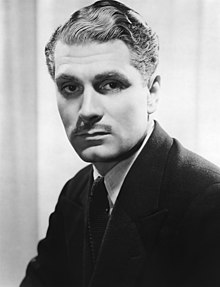Portal:Television
The Television Portal

Television (TV) is a telecommunication medium for transmitting moving images and sound. Additionally, the term can refer to a physical television set, rather than the medium of transmission. Television is a mass medium for advertising, entertainment, news, and sports. The medium is capable of more than "radio broadcasting", which refers to an audio signal sent to radio receivers.
Television became available in crude experimental forms in the 1920s, but only after several years of further development was the new technology marketed to consumers. After World War II, an improved form of black-and-white television broadcasting became popular in the United Kingdom and the United States, and television sets became commonplace in homes, businesses, and institutions. During the 1950s, television was the primary medium for influencing public opinion. In the mid-1960s, color broadcasting was introduced in the U.S. and most other developed countries.
In 2013, 79% of the world's households owned a television set. The replacement of earlier cathode-ray tube (CRT) screen displays with compact, energy-efficient, flat-panel alternative technologies such as LCDs (both fluorescent-backlit and LED), OLED displays, and plasma displays was a hardware revolution that began with computer monitors in the late 1990s. Most television sets sold in the 2000s were flat-panel, mainly LEDs. Major manufacturers announced the discontinuation of CRT, Digital Light Processing (DLP), plasma, and even fluorescent-backlit LCDs by the mid-2010s. LEDs are being gradually replaced by OLEDs. Also, major manufacturers have started increasingly producing smart TVs in the mid-2010s. Smart TVs with integrated Internet and Web 2.0 functions became the dominant form of television by the late 2010s. (Full article...)
Selected article -
Selected image -

Closed captioning (CC) and subtitling are both processes of displaying text on a television, video screen, or other visual display to provide additional or interpretive information. Both are typically used as a transcription of the audio portion of a program as it occurs (either verbatim or in edited form), sometimes including descriptions of non-speech elements. Other uses have been to provide a textual alternative language translation of a presentation's primary audio language that is usually burned-in (or "open") to the video and not selectable (or "closed"). HTML5 defines subtitles as a "transcription or translation of the dialogue ... when sound is available but not understood" by the viewer (for example, dialogue in a foreign language) and captions as a "transcription or translation of the dialogue, sound effects, relevant musical cues, and other relevant audio information ... when sound is unavailable or not clearly audible" (for example, when audio is muted or the viewer is deaf or hard of hearing").
Did you know (auto-generated) -

- ... that the theme song for Guilty's live-action television series is Toshi's first original song in 22 years?
- ... that in the television series sequel Imortal (2010), Angel Locsin portrayed the lead role as the daughter of her lycan character in the Lobo TV series?
- ... that just four years after starting up, the president of Satellite Television & Associated Resources commented that his entire industry had "gone down the drain"?
- ... that Fred Rogers created and hosted a television documentary series titled Old Friends ... New Friends due to his concern that older generations were getting more isolated from younger generations?
- ... that among the special events broadcast by the Maine Television Network during its brief existence were a fashion show, a basketball tournament, and an ordination ceremony?
- ... that New Mexico television station KIVA-TV received angry phone calls and a bomb threat after switching away from a tied football game?
Selected quote -
More did you know
- ...that the book South Park and Philosophy: You Know, I Learned Something Today analyzes the animated television comedy series South Park using philosophical concepts?
- ...that the fight scene between Peter Griffin and a giant chicken on Family Guy episode Blind Ambition was originally created for the episode Cleveland Loretta Quagmire?
- ...that Dyesebel, a popular mermaid character in Filipino comic books, cinema and television, was based on Philippine folklore?
- ...that the color signals of Israel Broadcasting Authority television transmissions were erased until 1981, to insure equality for families who couldn't afford color-tv?
- ...that like the characters in his television series The Practice and Boston Legal, David E. Kelley worked as a lawyer in a Boston law firm?
































































